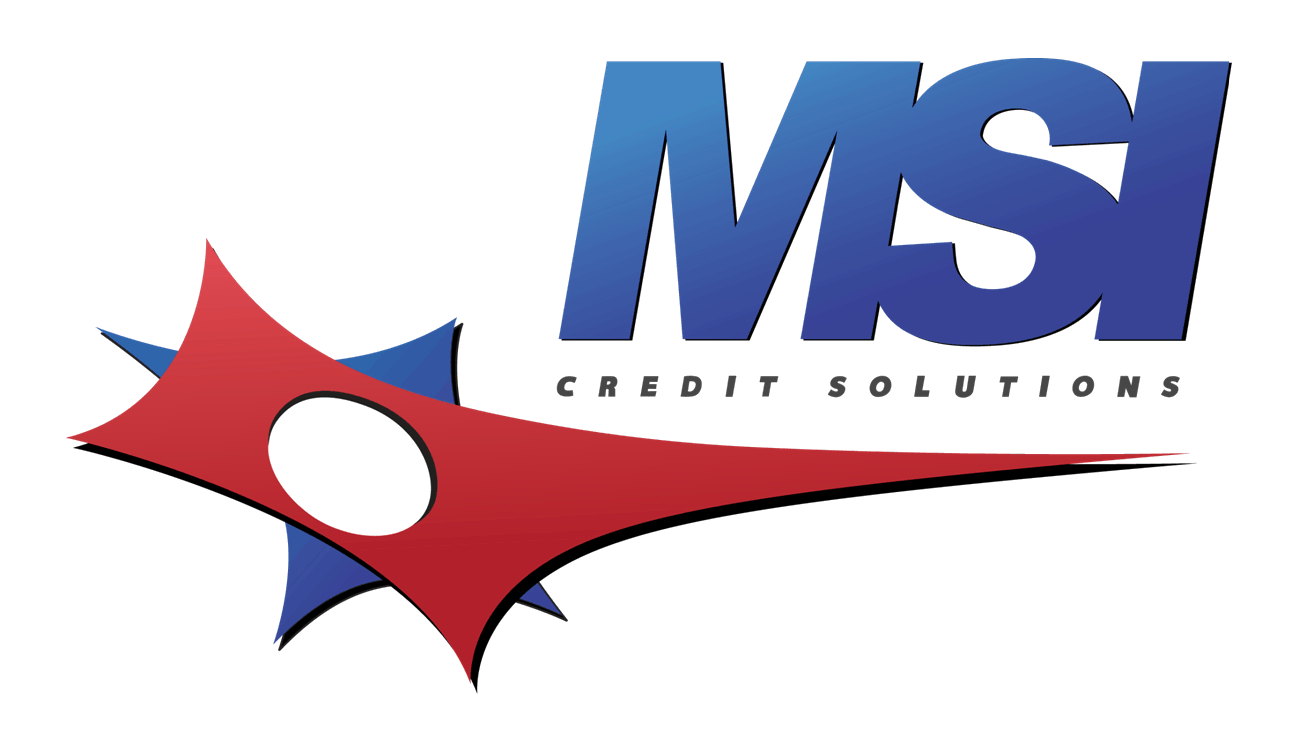Navigating Your Financial Future
As students embark on the journey of higher education, they often grapple with the intersection of student loans and credit. At MSI Credit Solutions, we understand the pivotal role credit plays in shaping financial futures. In this comprehensive guide, we delve into the intricate relationship between student loans and credit, providing insights, strategies, and expert advice to empower students and graduates on their financial path. Buckle in, because this is a long one!
Understanding the Dynamics:
The Marriage of Student Loans and Credit Scores
Student loans play a pivotal role in shaping individuals' credit profiles, impacting their credit scores in various ways. Here's a closer look at how student loans influence creditworthiness:
Payment History:
Timely repayment of student loans is crucial for maintaining a positive payment history, which accounts for a significant portion of one's credit score.
Late or missed payments can have adverse effects on credit scores, leading to lower creditworthiness and potential difficulties in obtaining credit in the future.
Debt-to-Income Ratio (DTI):
The amount of student loan debt relative to income affects the debt-to-income ratio, which lenders consider when evaluating creditworthiness.
Higher levels of student loan debt compared to income may increase DTI ratios, potentially signaling higher risk to lenders and impacting credit scores.
Loan Type:
The type of student loan—federal or private—can also impact credit scores differently.
Federal loans typically offer more borrower-friendly terms, such as income-driven repayment plans and deferment options, which can help borrowers manage payments and avoid negative credit implications.
Private loans, on the other hand, may have stricter terms and fewer repayment options, making it crucial for borrowers to carefully consider the terms and conditions before borrowing.
Impact of Student Loan Types on Credit
Federal Loans:
Federal student loans are issued by the government and typically come with borrower protections and flexible repayment options.
Repayment activities, such as on-time payments and enrollment in income-driven repayment plans, can positively impact credit scores.
Additionally, federal loans may offer options for deferment or forbearance during financial hardship, helping borrowers avoid negative credit consequences.
Private Loans:
Private student loans are offered by private lenders, such as banks or credit unions, and may have stricter terms and fewer borrower protections compared to federal loans.
Payment activities on private loans, such as on-time payments or delinquencies, directly impact credit scores and creditworthiness.
Borrowers with private loans may have fewer options for repayment assistance or deferment, potentially leading to more significant credit implications in case of financial difficulties.
Understanding the dynamics of student loans and their impact on credit scores is essential for borrowers to make informed decisions and manage their credit effectively. By staying proactive in managing student loan payments and understanding the differences between federal and private loans, individuals can work towards building and maintaining healthy credit profiles for long-term financial stability.
Strategies for Managing Student Loans and Credit
Responsible Borrowing Practices:
Understanding Borrowing Terms
Before borrowing student loans, it's crucial to thoroughly understand the terms and conditions associated with each loan option. This includes interest rates, repayment schedules, and potential penalties for late payments.
Borrowers should also assess their financial needs realistically and borrow only what is necessary to cover educational expenses. Avoiding excessive borrowing can minimize the long-term impact on credit and overall financial health.
Minimizing Borrowing Impact on Credit:
Borrowers should be mindful of how their borrowing decisions affect their credit profiles. Taking on too much debt or missing payments can negatively impact credit scores, making it harder to secure future credit or favorable interest rates.
By borrowing responsibly and making timely payments, borrowers can establish positive credit habits and maintain healthy credit scores over time.
Repayment Plans and Credit Health
Exploring Repayment Options:
There are various repayment plans available for federal student loans, each with its own implications for credit health. Borrowers should research and understand the differences between standard repayment, income-driven repayment, and other options.
Opting for income-driven repayment plans can be beneficial for borrowers experiencing financial hardship, as these plans adjust monthly payments based on income levels. This can help borrowers manage payments more effectively and avoid defaulting on loans.
Refinancing and Consolidation:
Borrowers may also consider refinancing or consolidating their student loans to simplify payments and potentially lower interest rates. However, it's essential to weigh the pros and cons of these options and consider their impact on credit scores.
Refinancing may result in a new loan with different terms and conditions, potentially affecting credit scores and eligibility for federal loan benefits. Consolidation combines multiple loans into a single loan, which can streamline payments but may not always result in lower interest rates.
Dealing with Student Loan Delinquency
Proactive Communication:
If borrowers encounter challenges with making student loan payments, it's essential to communicate with loan servicers as soon as possible. Many servicers offer assistance programs or flexible repayment options for borrowers facing financial difficulties.
Exploring deferment or forbearance options can provide temporary relief from loan payments, allowing borrowers to address financial issues without defaulting on loans.
Consolidation and Streamlining Payments:
Consolidating multiple student loans into a single loan can simplify payments and make them more manageable. This can help borrowers avoid missing payments or defaulting on loans, which can have severe consequences for credit health.
By taking proactive steps to address student loan delinquency and manage payments effectively, borrowers can minimize the negative impact on credit scores and work towards achieving financial stability.
Post-Graduation Credit Wellness:
Transitioning from Student to Professional
As graduates transition to the workforce, it's crucial to fortify their credit health. Develop a budget, build an emergency fund, and establish a positive credit history through responsible credit card usage and timely payments.
Credit Repair Solutions for Graduates
For graduates burdened by student loan-related credit issues, consider credit repair solutions. MSI Credit Solutions offers targeted services to help graduates overcome credit challenges, dispute inaccuracies, and improve credit scores.
Empowering Your Financial Journey
At MSI Credit Solutions, we recognize the intricate dance between student loans and credit. Our commitment is to empower individuals to navigate this terrain successfully. Whether you're a student contemplating loans or a graduate dealing with credit repercussions, MSI is your partner in achieving and maintaining a healthy financial future. Let us guide you on this journey of financial empowerment, where student loans no longer cast a shadow on your credit but become a stepping stone to your economic well-being.

Give us a call today for a free credit analysis and consultation!
(866) 217-9841

MSI Credit Solutions provides superior credit restoration and comprehensive consulting services that are reliable and affordable.
*The information in this article has been provided strictly for educational purposes.










